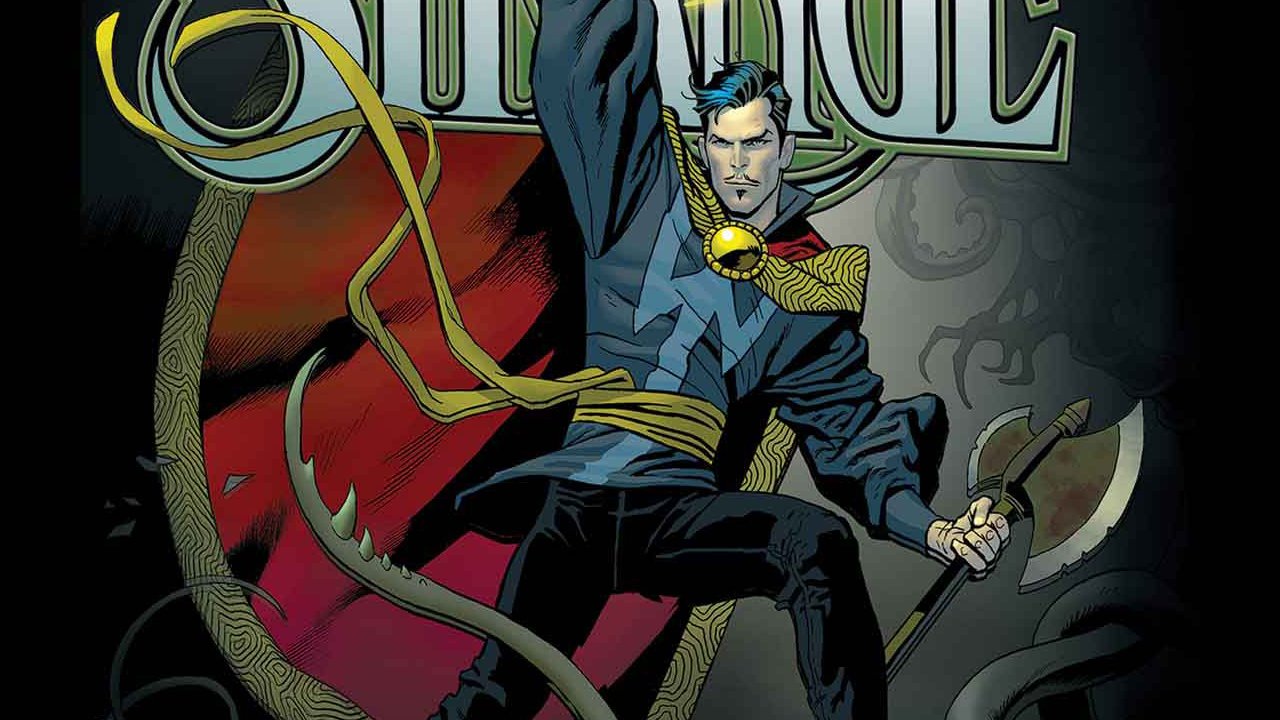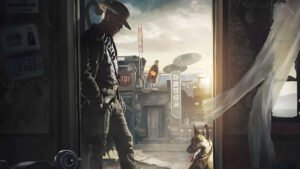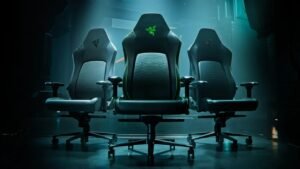With the upcoming Marvel Studios’ movie Doctor Strange just weeks away from release, it’s not a surprise that Marvel is releasing various Doctor Strange products, from trade paperbacks, to assorted merchandise, to a brand-new prose novel featuring the good doctor, titled Doctor Strange: The Fate of Dreams.
Devin Grayson, the writer of this exciting new novel is no stranger to comic book fans, having previously made a name for herself with acclaimed runs at DC Comics working on Gotham Knights, The Titans and Nightwing. Now, Grayson enters the world of Doctor Strange to tell an all-new magical adventure!
It’s been some time since you’ve had a novel published. What was it like returning to the keyboard to pen a prose story featuring Doctor Strange?
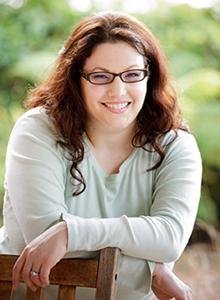
Well, I’ve never really left the keyboard: in addition to comics work for the History Channel, Dynamite, and IDW, I’ve been working with Penguin Random House / Del Rey on converting some of their YA properties into graphic novel scripts–two for Scott Westerfield’s Uglies series (Shay’s Story and Cutters) and a more recent, not-yet-published graphic retelling of one of Tamora Pierce’s brilliant books.
But in answer to the second part of your question, working in prose form is, indeed, different than working on scripts, and I find it an absolute joy. As I keep telling anyone who will listen, all of my academic study and initial training was in prose fiction—comics were the stretch for me. Though of course at this point in my career writing a comic is second nature, novel-writing is still my default mode. I know that based on my publishing history, most people would assume that prose writing is a side adventure, but when I get an assignment to write a novel, I feel like I’m finally back in my wheelhouse.
When dealing with a character with a rich and diverse history such as Doctor Strange, what’s it like to tell a story in a novel which isn’t connected to the main Marvel Universe?
It’s a combination. It’s freeing in the sense that you’re not shackled to precise up-to-the-last-issue continuity and have a little more room to let characters and concepts breathe than you might otherwise have, but by that same token, you don’t have any shorthand to fall back on. Scarlet Witch makes a brief appearance in the book, for example, and I had to remind myself to go back and describe her and explain who she was. Obviously, you should always properly introduce characters for new readers, even in comics, but when writing mainstream superhero comics, there’s an assumption that the wider universe the character moves through is easily accessible to if not in fact already known by the reader. In a novel, nothing exists beyond what the writer introduces and explains.
What is it like telling a story with a character whose major exploits are tied to such a visual medium, especially given the nature of the magic and adventures with which Doctor Strange is typically involved?
It was actually really fun to stop and think about what magic looks like, but I assure you, I would have been doing so for a comic script as well. Doctor Strange comics are—I suppose unsurprisingly!— utterly magical to look at, and of course we lose most of that element in a novel (I say most because in addition to our wonderful Kevin Nowlan cover, there actually is some great art in the book—pieces by Chris Bachalo, Rafa Sandoval, Wayne Faucher, Mark Irwin, John Livesay, Jaime Mendoza, Victor Olazaba, Tim Townsend, Al Vey and our book designer, Jay Bowen).
The spells and adventures are all still described, though, which hopefully allows readers to create their own visuals in their mind’s eye as they move through the story. And although it’s true that novels don’t have the amazing visual component of comic books, they tend to make up for it with roomier internal reflection. You’re able to be in a character’s head in a novel in a way that’s much harder to achieve in a comic without being overly verbose.
Who is Doctor Strange under your pen?
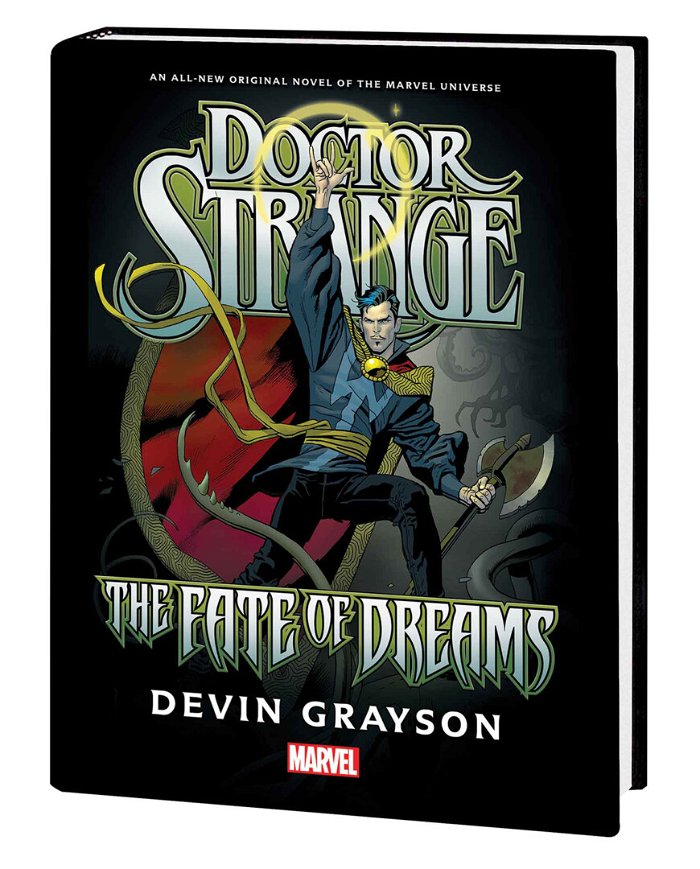
I fell so in love with Stephen Strange while working on this book! I love that he’s a grownup, and that he’s someone who’s learned from his mistakes. He’s astonishingly capable and by extension naturally confident, but he’s also learned humility and has probably the most accurate perception of any living being on Earth of what it really means to be human, and a citizen of the universe.
My Doctor Strange is diplomatic, distracted, and a little bit dashing. He’s brilliant, studious, conscientious, and someone who has learned—painfully and thoroughly—to stop looking for easy answers. Though not emotionally expressive, he feels things deeply, and he’s not afraid to shoulder responsibility or to confront the unknown. One of my more brilliant friends, after hearing about the complexities of the world he moves through, suggested that he might study math to relax. She shared this great quote by a Fields Medal winning mathematician, Richard Borcherds: “’maths is more real than the universe, because there are many different universes but only one mathematics.” There’s so much Stephen Strange in that statement! The ability to accommodate and even embrace endless variations in reality itself while instinctively craving scientific order and certainty… take that, add in an education in Western medicine eclipsed by intense study of Eastern mysticism, and I think you’re approaching Stephen Strange.
What kind of research and preparation was involved in writing this new novel?
All the research. All of it.
I actually knew next to nothing about Doctor Strange when I started, but I love the kind of deep, intensive study you need to do to write about a character you’re only just meeting—it’s such an all-consuming, immersive journey; not unlike falling in love. I read everything I could get my hands on but was a little lost until I fortuitously stumbled across a brilliant series of articles by Colin Smith over on Sequart.org. In addition to elucidating everything that made the character unique and laudable, Colin’s piece made a very strong case for the significance of the original source material. And as amazing as everything that has come out since Ditko and Lee’s initial run has been, those comics from the sixties were the ones that really spoke to me. They were unlike anything I had ever seen before, which I think is kind of at the heart of the Doctor Strange experience.
On the one hand, it seems obvious to go back to the original source material, but with mainstream superhero comics, that doesn’t always work as well as you might think. The franchise characters that have survived tend to evolve, becoming amalgamations of seminal stories they were featured in, often over wide-ranging decades and media. With Strange, though, that initial inception is still so vivid and informative. Once I knew that material, I realized that all the runs of Doctor Strange I loved most were directly informed by it.
What led you to this particular project?
The project found me. And I’m so glad it did.
The book comes out in October, the month before Doctor Strange makes his big cinematic debut. Was the timing of the project deliberate? What is it like writing a character in a prose novel who’s about to debut in the live-action Marvel Cinematic Universe?
The timing is very deliberate. The book is definitely meant to get people excited for the movie. And it certainly worked on me! I can’t frickin’ wait! I am not usually an opening weekend kind of movie-goer, but I’m pretty much ready to go get in line for Doctor Strange right now!
The funny thing is, part of my marching orders for the book were to not contradict anything that’s going to happen in the movie; a perfectly reasonable request that I was perfectly happy to agree to. And the obvious follow-up question to that is, “So, what’s going to happen in the movie?” I’d signed an NDA, I was on the team, I was trustworthy. But…crickets. I literally don’t know a single thing about the film you don’t know, and yet still feel a proprietary thrill every time I see a new trailer! It’s electrifying to write a character about to debut in the live-action Marvel Cinematic Universe. It’s a wonderful combination of professional pride and fangirl excitement—all the best of both worlds.

In your novel, do you cover Doctor Strange’s origin, or is he already firmly the Master of the Mystic Arts when we first meet him in the book, with established enemies and allies, etc?
Both. He is already firmly the Master of the Mystic Arts in the book, but I also touch on his origin—a few times, actually. Much of the story happens within the Dream Dimension, so there are plenty of opportunities to examine different moments from Stephen’s life, including my take on his origin, the death of his family members, and even his relationship with Clea.
What was it like living with Doctor Strange and his dark, magical world in your head?
God, I loved it. It’s such a unique and stimulating way to look at the world. You’re starting with a protagonist who was a complete skeptic before being presented with empirical evidence of the existence of magic. His belief is now absolute; the veracity of the forces he deals with beyond question. To enter that space as a writer, you have to develop a whole new cosmology. Doctor Strange is not someone who uses a special power he’s developed to manipulate an otherwise predictable universe, he’s someone who moves through, and protects, a deeper and more dynamic level of existence. The magic, in other words, is meaningful—it influences, permeates, and factors into the existence of absolutely everything.
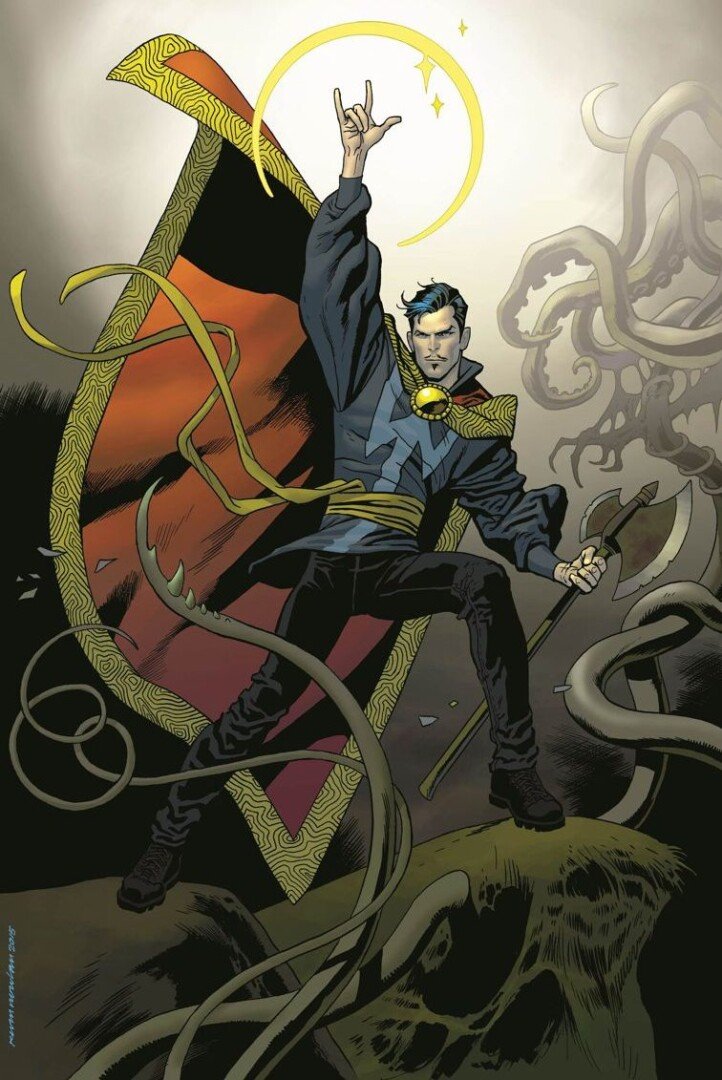
My story deals with dreams, so in addition to reading up on contemporary neuroscience, I had to delve into archetypal symbolism, multicultural mystical dream interpretation, and even the history of dream analysis. And all of that had to be woven together with magic as the organizing principle and given anthropomorphic realm guardians and a metaphysical location. It’s…well, it’s trippy as all get out!
And at the center of all of that is Stephen himself. I loved sharing my life with him; his calm self-assurance, his maturity, his focus and curiosity… There’s a panel I saved—I wish I’d kept better notes about where I found it, because I’d love to credit the writer—but I just took a screencap of the word balloon, which is Stephen saying: “My purpose is best served by assuming eventual victory.” I don’t know anyone else, fictional or otherwise, who would say something like that and mean it the way he does. And everyone needs at least one friend who could.
Now that you’ve been in Doctor Strange’s world, has there been any talk of you returning for another story? Any elements or characters you didn’t yet get a chance to play with that you’d love to use?
I would be thrilled to work with Stephen again, at any time and in any format. And I also got really excited about Clea, which is actually unusual for me; I don’t tend to gravitate toward female characters. I had to be careful with her in the book, but would love to get the chance to really explore who she is now. There’s a lot going on with Doctor Strange right now, though, so I’ll probably have to be patient. Unless, of course, something magical happens…
Doctor Strange: The Fate of Dreams is available now at bookstores and comic shops. Keep an eye on CGM for a review of the novel shortly.
